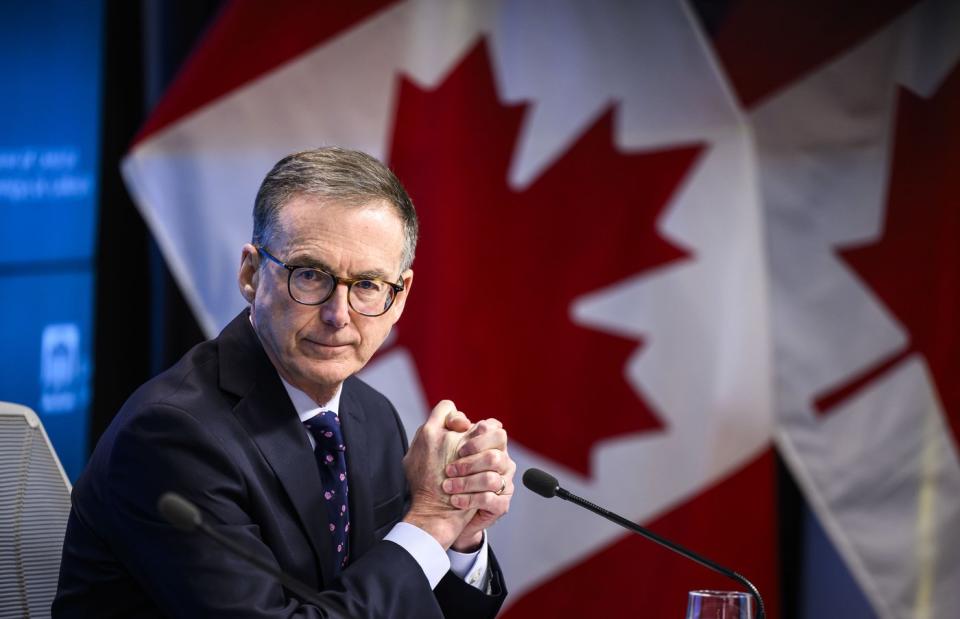Finance
Bank of Canada Rate Cut Looms as Trump Tariffs Paused for One Month

Bank of Canada Governor Tiff Macklem stated on Thursday that policy changes in the U.S. were creating uncertainty, while President Donald Trump’s tariff threats were already affecting businesses and households.
Earlier in the week, Trump temporarily postponed a 25% tariff on nearly all goods imported from Canada and Mexico. If implemented, such a measure could have driven both economies toward recession and higher consumer prices.
Canadian short-term interest rate traders have begun factoring in the possibility of an emergency rate cut by the Bank of Canada to counteract the potential economic damage from U.S. tariffs.
Although Monday’s one-month delay on tariffs for Mexico led to some optimism that Canada might also avoid them, interest-rate swaps tied to the Canadian Overnight Repo Rate Average (CORRA) saw significant declines.
Bank of Canada Meeting
Meanwhile, Canada’s two-year bond yield dropped sharply, falling to almost 180 basis points below its U.S. equivalent—the widest gap since 1997.
For the Bank of Canada’s upcoming meeting on March 12, related swap contracts reflect expectations of a 33-basis-point rate reduction. This suggests a quarter-point cut, with an additional eight basis points pointing to a 30% chance of further easing, either through a larger half-point cut or an inter-meeting adjustment.
The U.S. government announced this week that the tariffs would be paused for one month. However, Macklem noted during a virtual conference in Mexico City that Trump’s tariff threats already undermined confidence among businesses and households, particularly in Canada and Mexico.
He warned that prolonged uncertainty would strain economic activity in both countries. Last month, the Bank of Canada highlighted the difficulty in making accurate economic forecasts due to the tariff threats, cautioning that a 25% tariff could inflict severe economic harm.
In his speech on Thursday, Macklem emphasized that broad and significant tariffs would harm long-term economic growth in ways monetary policy cannot address. Beyond the tariff issue, he pointed to other major challenges affecting monetary policy, such as geopolitical tensions, rising trade barriers, economic fragmentation, technological shifts, and extreme weather events.
He acknowledged that these disruptions would force central banks to make tougher decisions. Macklem also stressed that central banks would likely face criticism for perceived ineffectiveness or failing to act sufficiently, with some questioning their independence.
During the pandemic, the Bank of Canada faced scrutiny from market analysts and politicians who blamed its monetary policy for failing to adequately address recession and unemployment. In a review published last month, the bank committed to improving its forecasting models and communication strategies to better prepare for future shocks.
Macklem concluded that in an unpredictable world, central banks must stay focused on ensuring price stability, communicating the limits of their policies, advancing modelling techniques, and working closely with international counterparts. He highlighted the importance of being evidence-based, professional, and free from political influence.

































